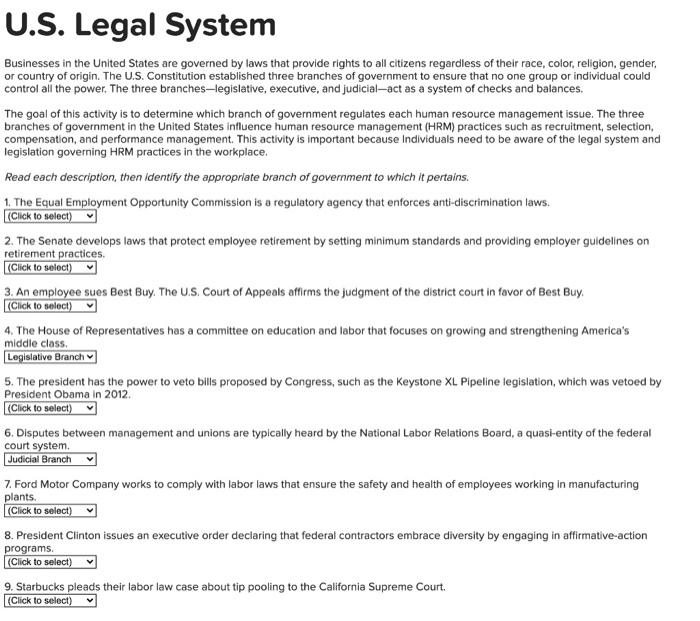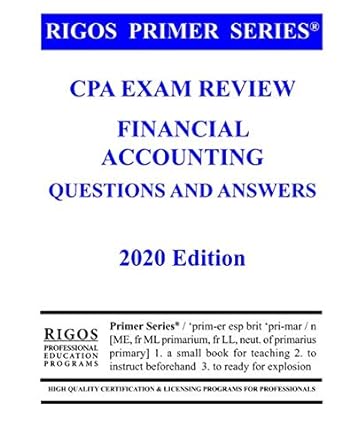U.S. Legal System Businesses in the United States are governed by laws that provide rights to all citizens regardless of their race, color, religion, gender, or country of origin. The U.S. Constitution established three branches of government to ensure that no one group or individual could control all the power. The three branches-legislative, executive, and judicial-act as a system of checks and balances. The goal of this activity is to determine which branch of government regulates each human resource management issue. The three branches of government in the United States influence human resource management (HRM) practices such as recruitment, selection, compensation, and performance management. This activity is important because Individuals need to be aware of the legal system and legislation governing HRM practices in the workplace. Read each description, then identify the appropriate branch of government to which it pertains. 1. The Equal Employment Opportunity Commission is a regulatory agency that enforces anti-discrimination laws. (Click to select) 2. The Senate develops laws that protect employee retirement by setting minimum standards and providing employer guidelines on retirement practices (Click to select) 3. An employee sues Best Buy. The U.S. Court of Appeals affirms the judgment of the district court in favor of Best Buy (Click to select) 4. The House of Representatives has a committee on education and labor that focuses on growing and strengthening America's middle class. Legislative Branch 5. The president has the power to veto bills proposed by Congress, such as the Keystone XL Pipeline legislation, which was vetoed by President Obama in 2012. (Click to select) 6. Disputes between management and unions are typically heard by the National Labor Relations Board, a quasi-entity of the federal court system Judicial Branch 7. Ford Motor Company works to comply with labor laws that ensure the safety and health of employees working in manufacturing plants. (Click to select) 8. President Clinton issues an executive order declaring that federal contractors embrace diversity by engaging in affirmative-action programs (Click to select) 9. Starbucks pleads their labor law case about tip pooling to the California Supreme Court (Click to select)







